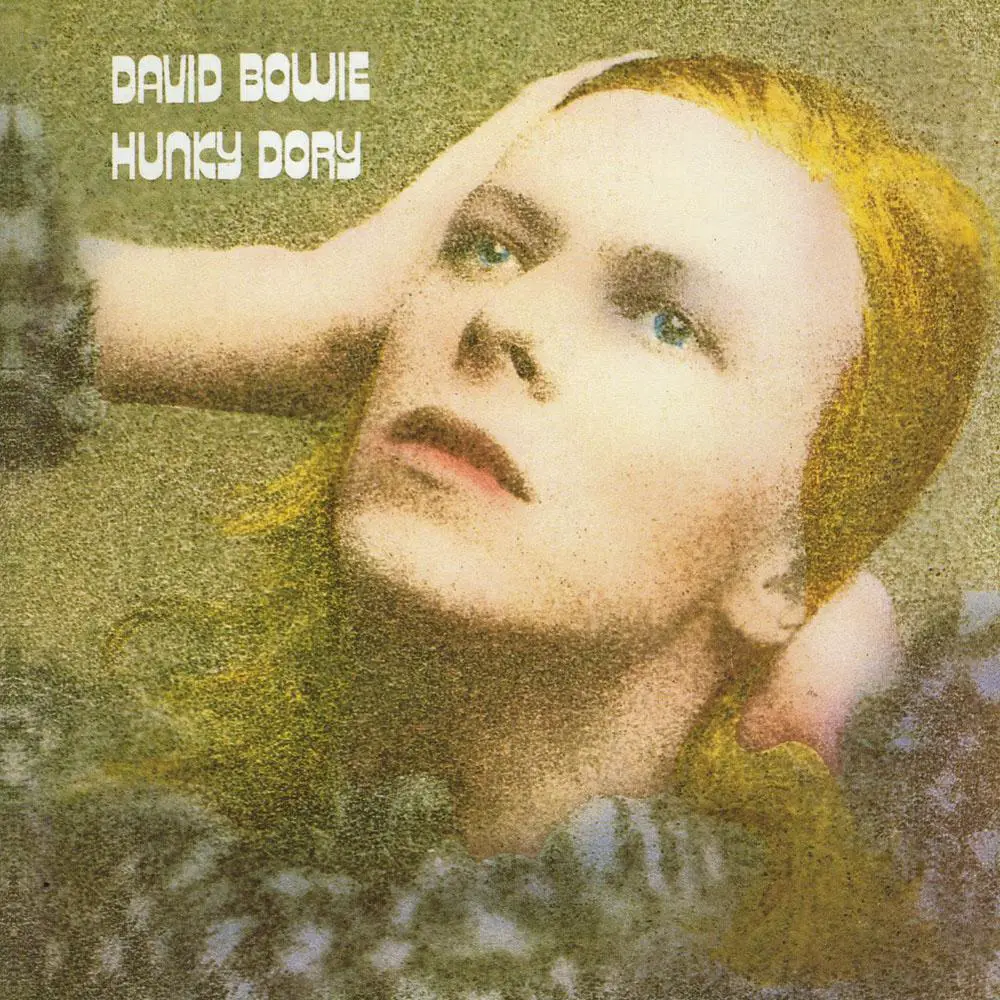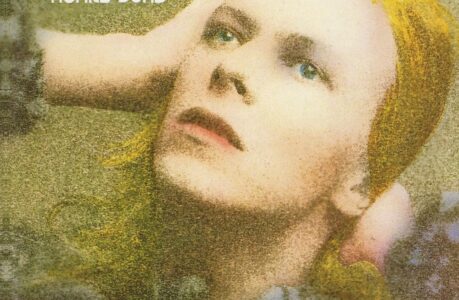History and Development
David Bowie, the enigmatic pioneer of musical exploration, left an indelible mark on the music industry with his illustrious career. Among his array of iconic albums, “Hunky Dory” stands as a testament to his unparalleled creativity and innovation. Released in 1971, this album marked a pivotal moment in Bowie’s trajectory, showcasing his evolution as an artist and cementing his status as a visionary.
Bowie’s journey towards crafting “Hunky Dory” was a culmination of his experiences and artistic experimentation. The album emerged amidst a transformative period in Bowie’s life, where he sought to redefine his sound and persona. Departing from his previous works, Bowie delved into a realm of introspection and self-discovery, channeling his innermost thoughts and emotions into his music.
What Inspired Hunky Dory
Inspiration for “Hunky Dory” stemmed from Bowie’s eclectic influences and personal musings. Drawing from a diverse range of sources, including literature, art, and philosophy, Bowie crafted a multifaceted narrative that traversed themes of identity, creativity, and existentialism. His fascination with the avant-garde and the surreal permeated throughout the album, imbuing it with a sense of otherworldly allure.

Key Themes
“Hunky Dory” delves into a myriad of themes that reflect Bowie’s introspective journey and artistic exploration. Central to the album is the theme of self-discovery and reinvention, as Bowie grapples with questions of identity and purpose. Each track serves as a vignette, offering glimpses into Bowie’s psyche and the complexities of human existence. From the whimsical to the profound, “Hunky Dory” traverses a spectrum of emotions, inviting listeners on a transcendent odyssey of the mind and soul.
Track Listing
- Changes – A poignant exploration of transformation and the passage of time, “Changes” sets the stage for the album’s introspective journey. Bowie’s emotive vocals and stirring lyrics captivate listeners, laying the foundation for the ethereal voyage that follows.
- Oh! You Pretty Things – With its infectious melody and thought-provoking lyrics, “Oh! You Pretty Things” encapsulates Bowie’s fascination with the enigmatic and the surreal. The track beckons listeners into a world of wonder and imagination, inviting them to ponder the mysteries of existence.
- Eight Line Poem – A lyrical masterpiece, “Eight Line Poem” showcases Bowie’s poetic prowess and introspective depth. The song’s intricate verses and haunting melody evoke a sense of wistful nostalgia, resonating with listeners on a profound level.
- Life on Mars? – Arguably one of Bowie’s most iconic songs, “Life on Mars?” is a tour de force of musical innovation and lyrical brilliance. With its cinematic scope and existential themes, the track captivates audiences with its mesmerizing blend of fantasy and reality.
- Kooks – A whimsical ode to parenthood and the joys of family life, “Kooks” radiates with warmth and sincerity. Bowie’s tender vocals and heartfelt lyrics imbue the song with a sense of intimacy, inviting listeners to embrace the beauty of love and connection.
- Quicksand – An introspective masterpiece, “Quicksand” delves into the depths of Bowie’s psyche, exploring themes of identity and existential angst. The track’s haunting melody and evocative lyrics transport listeners into a realm of introspection and self-discovery.
- Fill Your Heart – A jubilant celebration of life and love, “Fill Your Heart” exudes a sense of optimism and vitality. Bowie’s spirited vocals and infectious energy infuse the song with a joyous fervor, inspiring listeners to embrace the beauty of the present moment.
- Andy Warhol – A tribute to the iconic artist and cultural luminary, “Andy Warhol” pays homage to Bowie’s avant-garde influences and artistic vision. The track’s experimental soundscapes and enigmatic lyrics capture the essence of Warhol’s enigmatic persona, inviting listeners to ponder the complexities of art and fame.
- Song for Bob Dylan – A heartfelt tribute to the legendary troubadour, “Song for Bob Dylan” showcases Bowie’s reverence for musical innovation and poetic storytelling. The track’s soulful melody and evocative lyrics resonate with a sense of admiration and respect, honoring Dylan’s enduring legacy.
- Queen Bitch – A gritty anthem of rebellion and defiance, “Queen Bitch” channels Bowie’s rock ‘n’ roll roots with electrifying fervor. The track’s infectious rhythm and rebellious spirit captivate listeners, inviting them to revel in the exhilarating chaos of youth and rebellion.
- The Bewlay Brothers – A haunting finale to the album, “The Bewlay Brothers” delves into the darker recesses of Bowie’s psyche, exploring themes of madness and mortality. The track’s enigmatic lyrics and brooding atmosphere cast a spellbinding aura, leaving listeners spellbound in its wake.
Ranking Among Other Bowie Albums
Comparing “Hunky Dory” with other Bowie albums involves considering various factors, including cultural impact, musical innovation, and critical reception. While opinions may vary among fans and critics, “Hunky Dory” often ranks highly in discussions about Bowie’s discography, thanks to its timeless appeal and enduring influence.

- The Rise and Fall of Ziggy Stardust and the Spiders from Mars: Widely regarded as Bowie’s magnum opus, “Ziggy Stardust” holds a special place in the hearts of fans and critics alike. Its conceptual narrative, innovative sound, and iconic characters solidify its status as one of the greatest albums in rock history.
- Hunky Dory: While “Ziggy Stardust” may overshadow it in popular discourse, “Hunky Dory” remains a cornerstone of Bowie’s oeuvre. Its eclectic blend of musical styles, introspective themes, and lyrical depth continue to captivate audiences, earning it a revered place in the pantheon of rock classics.
- Low: A departure from his glam rock persona, “Low” represents Bowie’s foray into experimental territory. Its innovative use of electronic music and ambient soundscapes broke new ground in the realm of popular music, cementing Bowie’s reputation as a trailblazer and visionary.
- Station to Station: Often hailed as Bowie’s “thin white duke” era, “Station to Station” showcases Bowie at the height of his artistic powers. Its fusion of funk, soul, and rock influences creates a mesmerizing sonic landscape that defies categorization, earning praise from critics and fans alike.
- Heroes: The second installment in Bowie’s acclaimed Berlin trilogy, “Heroes” is a testament to his collaborative spirit and creative genius. Its title track, a haunting anthem of resilience and defiance, remains one of Bowie’s most iconic songs, inspiring countless artists across generations.
While “Hunky Dory” may not always claim the top spot in rankings of Bowie’s albums, its enduring legacy and timeless appeal ensure its place among the pantheon of musical masterpieces. From its introspective lyrics to its eclectic musical palette, “Hunky Dory” continues to enchant and inspire listeners, cementing its status as a true classic in the annals of rock history.
Significant Reviews
“Hunky Dory” garnered widespread acclaim from critics and audiences alike, with many lauding its artistic vision and musical innovation. Rolling Stone hailed the album as a “masterpiece of introspection and imagination,” praising Bowie’s lyrical depth and experimental prowess. Pitchfork praised its “timeless relevance” and “sonic diversity,” while NME hailed it as “a landmark album in the annals of rock history.”
List of Similar Albums to Hunky Dory
- The Velvet Underground & Nico – A seminal work of art-rock experimentation, The Velvet Underground‘s debut album echoes Bowie’s avant-garde sensibilities and lyrical depth.
- Sgt. Pepper’s Lonely Hearts Club Band – The Beatles’ groundbreaking masterpiece shares thematic similarities with “Hunky Dory,” exploring themes of identity and existentialism through its eclectic blend of musical styles.
- The Rise and Fall of Ziggy Stardust and the Spiders from Mars – Bowie’s own magnum opus, this album bears resemblance to “Hunky Dory” in its exploration of identity, transformation, and the allure of fame.
In conclusion, “Hunky Dory” stands as a testament to David Bowie’s enduring legacy and unparalleled creativity. Through its ethereal melodies and thought-provoking lyrics, the album invites listeners on a mesmerizing journey of self-discovery and artistic exploration. With its timeless relevance and visionary scope, “Hunky Dory” remains a beacon of inspiration for generations to come.

